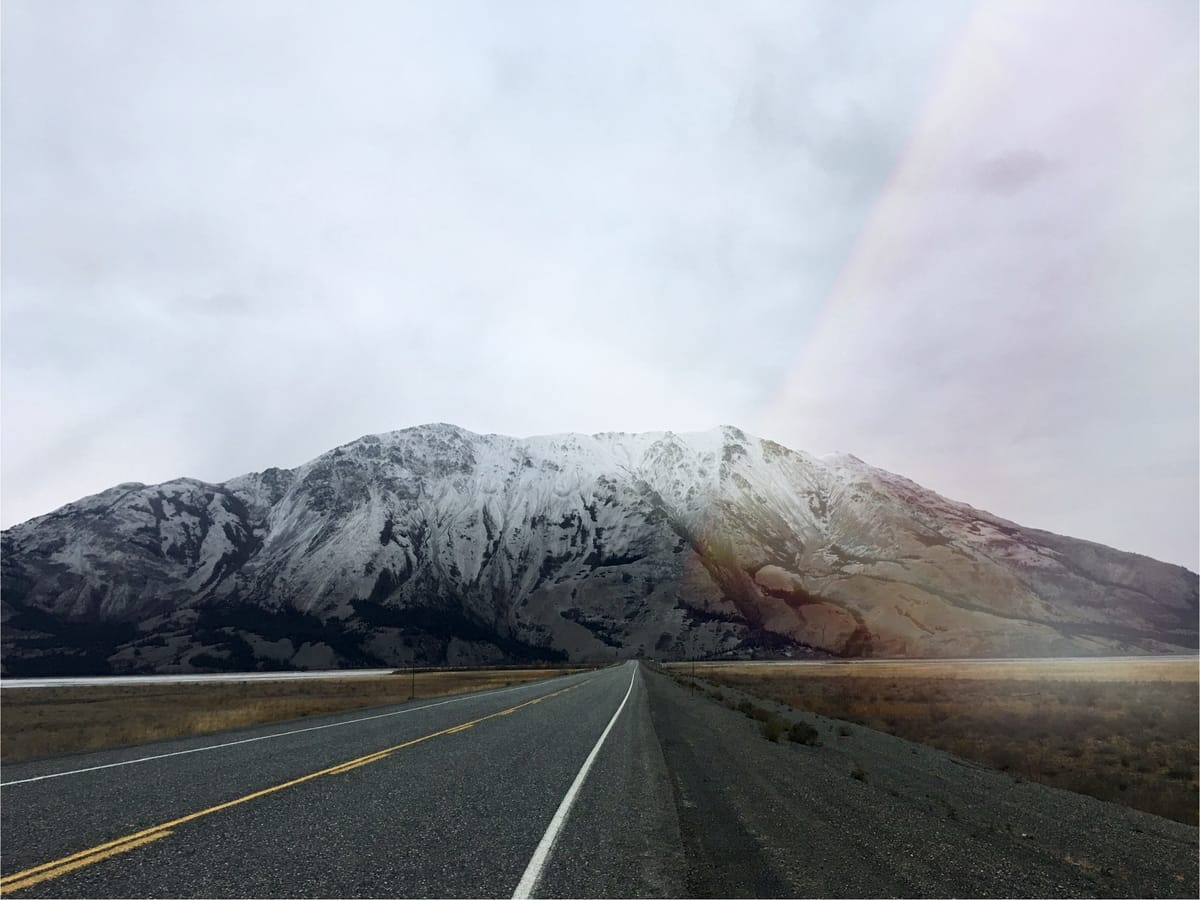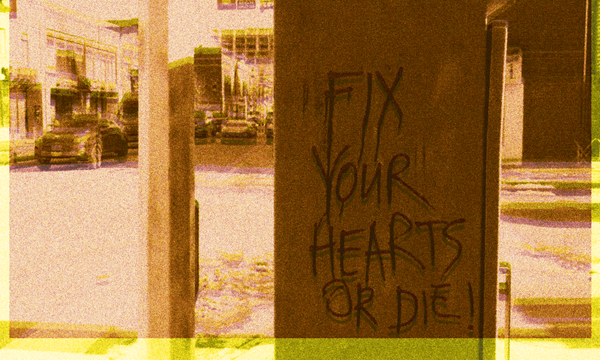Shadows wandering off somewhere

I can’t say this for certain, but I believe part of preparing to release a book is psyching yourself up for people you’ve never met to hate you for the rest of your life. This is where I’m at in the process, or at the very least in my process. I don’t know what standard practice is because I’m new to this and because my background is in trades and when you’re preparing to design and rebuild the front entrance to a WalMart you don’t think nearly as often about how people are going to hate you for what you’ve done. But it happens there too.
Maybe it’s just me that feels like this, which is a very sobering thought for a very sober person on a very sober morning in the early fall. Fall is different for me now, but a familiar kind of different. It snowed back home according to Instagram and it’s barely scratching a cold here in Toronto, but it all kind of feels the same. My breath still looks the same when it hits the air, vapor dancing on the wind, hinting at the cold to come.
I had breakfast with dear friend and incredible writer Emma Healey yesterday – I urge and implore you to buy her book, Best Young Woman Job Book, which to date has my vote for best title of a book, and also happens to be one of my most favorite reads – and we were talking about work and talking about anxieties around it and it always feels reassuring to know that the way my brain haunts me with nagging doubt in the night is at least a common experience. We are all plagued with demons at times, and maybe that’s part of it. They say that when you go on stage to perform, you should feel like you’re about to die, like the butterflies in your stomach have wings made of flat razors and that this might be the end for you. That’s the sign of a good night. Be anxious and you’ll be fine, but too much confidence and it might all fall to shit.
This is me reassuring myself that it’s okay to feel this bad about the future. Maybe this is all a good sign.
We were talking about all of these worries and nagging feelings and I was talking about my former life in a former body in a city where the winter arrives with the fall in October and how funny a hard day of work is now compared to then. Before when I worked hard and long I had blood on my body and I couldn’t always remember where and when it had initially appeared. I have a bad back, poor eyesight in my left eye because of the time a window exploded in my face and cut my cornea, bruises and scars and all of those things and that’s how I knew I worked hard. Now I sit at a desk and squeeze out words and pretend this is just as hard.
I think the conversation around class and comfort has been flattened in the social media age, but I come from working class people and I am working class people but my life is more comfortable and safe now. Safe, but no less precarious.
When you rebuild the front entrance to a WalMart, they don’t let you work during the day. I had my own construction company; I’m a journeyman glazier but through that I learned how to install and maintain automatic doors and became the only person in the Yukon who was adept at the work and so I was thankfully very busy. I would work most of the day, eat, and at 10 PM I would go to WalMart, tear down the old doorways and rebuild the framework and the install the new system I had designed overnight. I had to be sure to wrap up by 8 am, when the day shift workers would come in and clap in unison while spelling each letter in WalMart together, like a cult designed a team building exercise.
At 8 AM, I would say I was going home to sleep, but there was always someone else who needed me, and there was always coffee, and my motto became “I’ll sleep when I’m dead” and I always thought that would come for me soon enough.
It was December when I did this work, and in December at night in an empty WalMart all I could hear was the sound of labor; tools clanging and falling, the movement of forklifts as stock was refreshed in the store by the night shift and the exasperated swearing and occasional chatter from Chuck, the hired hand I brought on to help carry the heavier loads. In the background, the radio played the hits of the 80s and 90s mixed with Christmas songs as the season dragged on.
It is a jarring transition between Fastball’s “The Way” and “Mary’s Boy Child/Oh My Lord” by Boney M, but it also kind of works as a beautiful symphony of contrast and I imagine a smarter person than me could make a grand piece of art around this kind of radio station and how they are the backdrop of lives we tend to think aren't capable of prestige stories. A station not built of an algorithm the way we know it now, but a system with data placed in and music pouring out the other side that filters into lives that work long and hard hours in order to survive and build the world others take for granted in the daytime.
Chuck and I absentmindedly sang the words we knew to every song we knew by heart, because they were the songs that had lived on every station just like this since we were old enough to remember the radio. We wouldn’t get into whether any of it was good, there’s no point in arguing the cultural signifigance of “Drinking in L.A” at 5 o'clock in the morning. Those hours are just for memories, that time was just for us, and there’s something absurdly beautiful about working for days on end and becoming so delirious from it that nothing could hurt you. We just knew the words, and we sang them together as we sweat and bled and swore and laughed and felt exhaustion linger at the skin of our bones.
I think that a lot of the music I love is bad. This is firmly a me problem. Not “bad”, because I don’t really believe in the idea that art can be bad, but it’s not always popular by a wide consensus, or cool or whatever. Someone will feel inclined to write me and say “it doesn’t matter if other people like it”, and I’m just telling you right now you don’t have to. I’m 42 years old, and I know this.
I didn’t come up as a critic. I was a failed high school student who became a journeyman at 21 and had my own construction company at 27 and drank and fucked around and spent all my money and lost everything and was tired a lot but I’ll sleep when I’m dead and I always thought I would be dead before I got to really be alive. And yet, here I am. Because I’m not a critic by trade, because I’m a glazier who started her own automatic door company when she was 27 and not yet out as myself, I feel anxious about the work that I do, now that I’m the version of myself who feels alive.
I’m starting to make peace with the parts of myself I sometimes, oftentimes, wish had been different. Imagine if I had been born different, chosen a side path, became a writer in my 20s, or came out when I was 21. But that’s not the life we get, we don’t get to go back, sliding doors don’t open that way. I don’t get to have a lifetime as a critic building to the moment I publish my first book, I just have to know that in my early 40s life has become something different and I worry that my decisions will be the exact thing that people tear me apart for.
My book is called The Dad Rock That Made Me a Woman, and you’ll be surprised to know I took a very liberal approach to what dad rock is, because it’s already a genre of loose definition and it mattered more to me to write about the kind of music that feels like it orbits the world I inherited from my dad. That world has Fastball on the radio because “The Way” is a goddamn, gorgeous, beautiful song to steal a phrase from the all-time great Yasi Salek (listen to Bandsplain if you’re not already, it will heal you in the most insane way possible).
I think the music that made me feel alive in the moments I should have felt anything but are the important parts of my body. They are bones and sinew and structure and ideas and sometimes they’re “Fisherman’s Blues” by the Waterboys because my dad liked them, and sometimes they’re Wilco and sometimes they’re women who feel like dads to me because a dad is different than a father and maybe the book will explain this. Maybe not. I’m worried about what people will say about my choices, the songs and bands I have chosen to write about and claimed as dad rock, but not worried enough to stop. Maybe we need a new canon. Maybe I can become a scholar of dad rock, or even just of radio stations that play in WalMarts late at night when all the world is asleep except the people who build it.
I am worried and anxious about what you will all feel and think, if you read the book at all, and I will be ashamed when people pick apart my logic or laugh at the things I love but it won’t stop me from wanting to do more of this. Maybe it's fine to write not from a lifetime of critique but instead decades of love steeped in our blood. The lyrics and melody and memory left behind floating to the surface. Sometimes, I think, it’s important to just remember the words to songs we have long forgotten and not pick at their relevance.
The last day I spent building the door to that WalMart, I stood in the parking lot in my cleanest dirty clothes with a drafting notebook, a tired pencil and an urgent coffee. I had been up for 48 hours. I was delirious and built of vapour but standing all the same, drafting notes on finishing touches. A man walked up to me, looked at my drawing and numbers, my pencil and coffee and cleanest dirty clothes in front of the entrance I had made and said “Know what would help?” and I humored him, against my better judgment, replied with a “what’s that?” and his reply to me was “finishing high school.”
In his defense, it’s true that I didn’t really finish high school. People always liked to make jokes about me when they knew I could hear them just well enough to be hurt.
So I guess what I’m saying is I’m going into all this a bit salty, but something important to remember, I suppose, is that regardless of the work and regardless of the perception and the prestige there is one universal truth: people are always going to be like this, and it’s on me to just keep going.




